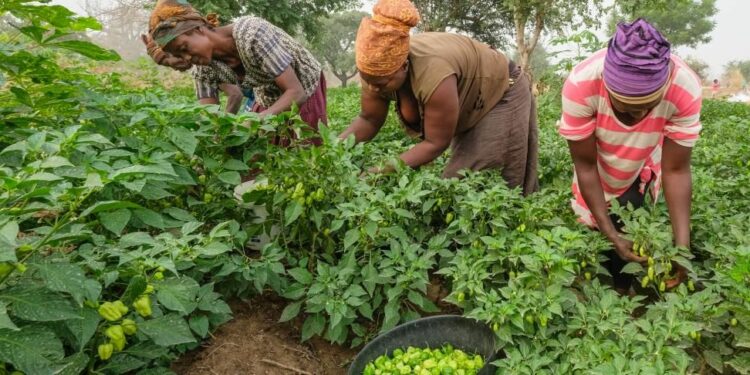CSO Budget Forum advocates for $300m investment in agriculture from $3bn IMF ECF
The CSOs Budget Forum’s collated inputs for the 2024 Budget focus on the thematic areas of Macro-fiscal (Revenue and Expenditure measures); Extractives and Energy; Social Spending (Health and Education) and Agriculture (Food Security).
- Advertisement -
The CSOs Budget Forum has called on Government to invest 10% of the $3bn Extended Credit Facility (ECF) from the IMF in the country’s agriculture sector.
Making the call during a media press briefing on Thursday, November 9, 2023, to share collated inputs for the upcoming 2024 Budget, the CSO Budget Forum noted that investing 10% of the $3bn IMF ECF which translates into some $300m will provide the requisite multiplier effects needed to reduce inflation, exchange rate among others.
According to the CSOs Budget Forum, the allocation will expand the provision of subsidies for improved seeds, pesticides, and fertilizers.
The allocation can also be used to provide interest rate subsidy loan schemes to farmers and agribusiness value chain actors.
Additionally, the allocation can be used to provide dedicated funding for livestock production to reduce importation and also provide dedicated funding for youth to enter into agribusiness through business incubations.
The CSOs Budget Forum’s collated inputs for the 2024 Budget focus on the thematic areas of Macro-fiscal (Revenue and Expenditure measures); Extractives and Energy; Social Spending (Health and Education) and Agriculture (Food Security).

The Budget Statement and Economic Policy of the Government for the 2024 Financial Year is scheduled for presentation on November 15, 2023, by the Finance Minister, Ken Ofori-Atta.
Ghana has revised downward its growth forecast for this year due to a sluggish economy, global challenges, and the impact of fiscal austerity measures agreed upon with the International Monetary Fund (IMF).
The nation now anticipates a real gross domestic product (GDP) growth rate of 1.5% for the current year, a reduction from the earlier projection of 2.8%.
Ghana, given its debt unsustainability, has embarked on a debt restructuring initiative, part of a $3 billion bailout program established with the IMF in May.
Compliance with the IMF’s requirements involves timely negotiations with investors, as well as continued efforts by the central bank to control inflation.
The IMF program’s terms include Ghana’s commitment to curbing expenditure and enhancing revenue collection. The country, which ranks as the world’s second-largest cocoa bean producer, aims to reduce its debt-to-GDP ratio to 55% by 2028, down from 71.3% recorded at the close of 2022.
In line with the IMF-supported program, Ghana is projected to improve its primary balance and achieve a surplus equivalent to 1.5% of GDP for the years 2025 through 2028.
The authorities’ objective is to elevate the government revenue-to-GDP ratio to over 18.5% by the conclusion of the three-year program, up from 15.7% in 2022, considering Ghana’s relatively low tax-to-GDP ratio compared to its potential.
The CSOs Budget Forum comprises 13 Civil Society Organisations (CSOs) namely; ACT Africa, NRGI, OXFAM, Revenue Mobilisation Africa, Watch Africa, Ghana Anti-Corruption Coalition, SEND Ghana, Africa Education Watch, Economic Governance Platform, ACEP, Tax Justice Coalition, BudgiT Ghana and Peasant Farmers Association of Ghana.
- Advertisement -
- Advertisement -


